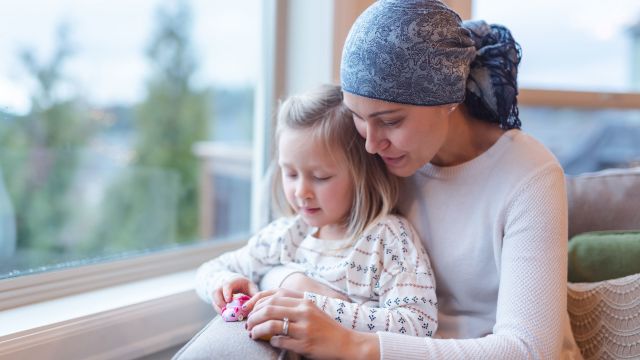Telling people you have metastatic breast cancer is not easy. While you may feel isolated and alone, it is important to remember that you do not have to face this alone. You need the emotional support of the people who care about you, and there can be great value in sharing your diagnosis. While everyone’s experience with MBC is different, and there is no right or wrong way to feel, the following strategies may help guide you through the difficult conversations of telling people about your diagnosis.
Expect change
When you tell anyone about your diagnosis, expect change. Cancer affects the person who is diagnosed as well as those around them. The news may alter the dynamics of your relationships, and may even strain some relationships. But this does not mean you should avoid telling people. Informing close friends and loved ones about your diagnosis can help ease your burden.
Focus on what you can control
It’s advice you’ve probably seen or heard before: focus on what you can control. And it applies here. Remember that the decision of who to tell, when to tell, where to tell and how to tell someone about your diagnosis is yours to make. While you may feel a sense of obligation or urgency to share the news with some people, remember that it is okay to take some time for yourself to think about how you want to share the news.
Prepare for the conversation
Having a plan of what you want to say and how you want to say it can be helpful. Before the conversation, decide how much you want to share—how much detail about your diagnosis, your treatment options, your symptoms and your feelings. You may want to be more candid with some people more than others, for a variety of reasons, and you should not feel guilty about that.
It can also help to prepare for the questions that the person or persons you are going to be talking to might have, including questions about your diagnosis and next steps. Though it is comforting to know that you have the support and encouragement of others, it is not always easy to come up with an answer when someone asks you how they can help. Take some time to think about it beforehand. Keep in mind that being able to help you may make this easier for your friends and loved ones.
Preparation is especially important when talking to children about a condition like MBC. You will want to provide information using words they will understand and in terms appropriate for their ages and maturity levels—for example, talking to young children will be very different than talking to teenagers. While young children do not need detailed medical information, children of all ages need honesty. Again, be prepared to answer questions. If you are speaking to children outside your immediate family—such as nieces, nephews, cousins or children of close friends—include their parents, and ask their parents for guidance and help in the conversation.
Also, be prepared for people to say the wrong things. Despite good intentions, some people will say things that seem insensitive or unhelpful. People may question your decisions, or tell you what they think you should or shouldn't do. Try not to hold it against them, and try to remember that this news is not easy for them to process. Ask them to please listen, without judging or offering advice.





